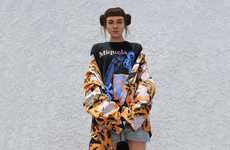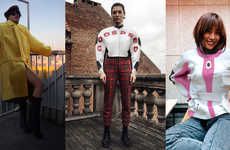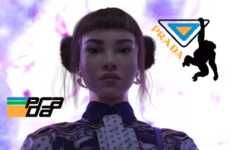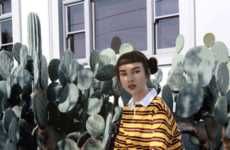
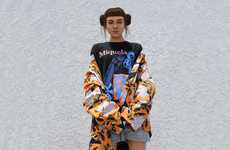


Artificial digital influencers are on the rise and collaborating with brands
Trend - Computer-generated social media influencers are on the rise, and so now are their collaborations with big brands due to their enormous popularity online. These virtual models are created by appropriating the images and aesthetics of successful real-life models in the influencer space.
Insight - The influencer space has grown so much that consumer fatigue is starting to set in. Consumers are increasingly questioning the motives and authenticity of influencers, and are more frequently seeing the influencer industry as just an extension of traditional forms of marketing. Alternative creations in this space are often transparent about their lack of authenticity, and so appeal to consumers via mystery and intrigue.
Insight - The influencer space has grown so much that consumer fatigue is starting to set in. Consumers are increasingly questioning the motives and authenticity of influencers, and are more frequently seeing the influencer industry as just an extension of traditional forms of marketing. Alternative creations in this space are often transparent about their lack of authenticity, and so appeal to consumers via mystery and intrigue.
Workshop Question - Conceptualize a campaign for younger consumers that would leverage the reach of a virtual influencer.
Trend Themes
1. Computer-generated Influencers - The creation of computer-generated influencers is a trend that could disrupt the traditional influencer space, offering brands new, fresh, and mysterious collaboration opportunities.
2. Hyper-realistic Digital Personalities - The emergence of hyper-realistic digital avatars is something that has led to an entirely new type of influencer who interacts with their followers in ways that used to only be possible with physical people.
3. Fictitious Digital Humans - The creation of fictitious digital humans has allowed for brands to create a brand ambassador that is entirely on-brand and can push fashion and marketing forward in the digital age.
Industry Implications
1. Fashion Industry - The fashion industry can look to computer-generated influencers, virtual luxury fashion models, and digital media influencers to collaborate with and market to customers in new and unique ways.
2. Marketing Industry - The marketing industry can benefit from the emergence of hyper-realistic digital avatars and fictitious brand-representing influencers to reach customers in new and innovative ways that blur the lines between reality and the digital world.
3. Tech Industry - The tech industry can explore the potential of computer-generated influencers, hyper-realistic digital avatars, and fictitious digital humans to push the boundaries of what is possible in the digital space, and use them to highlight the cutting-edge technology that makes them possible.
5 Featured, 17 Examples:
149,258 Total Clicks
Date Range:
Jun 18 — Nov 18
Trending:
Warm
Consumer Insight Topics:

